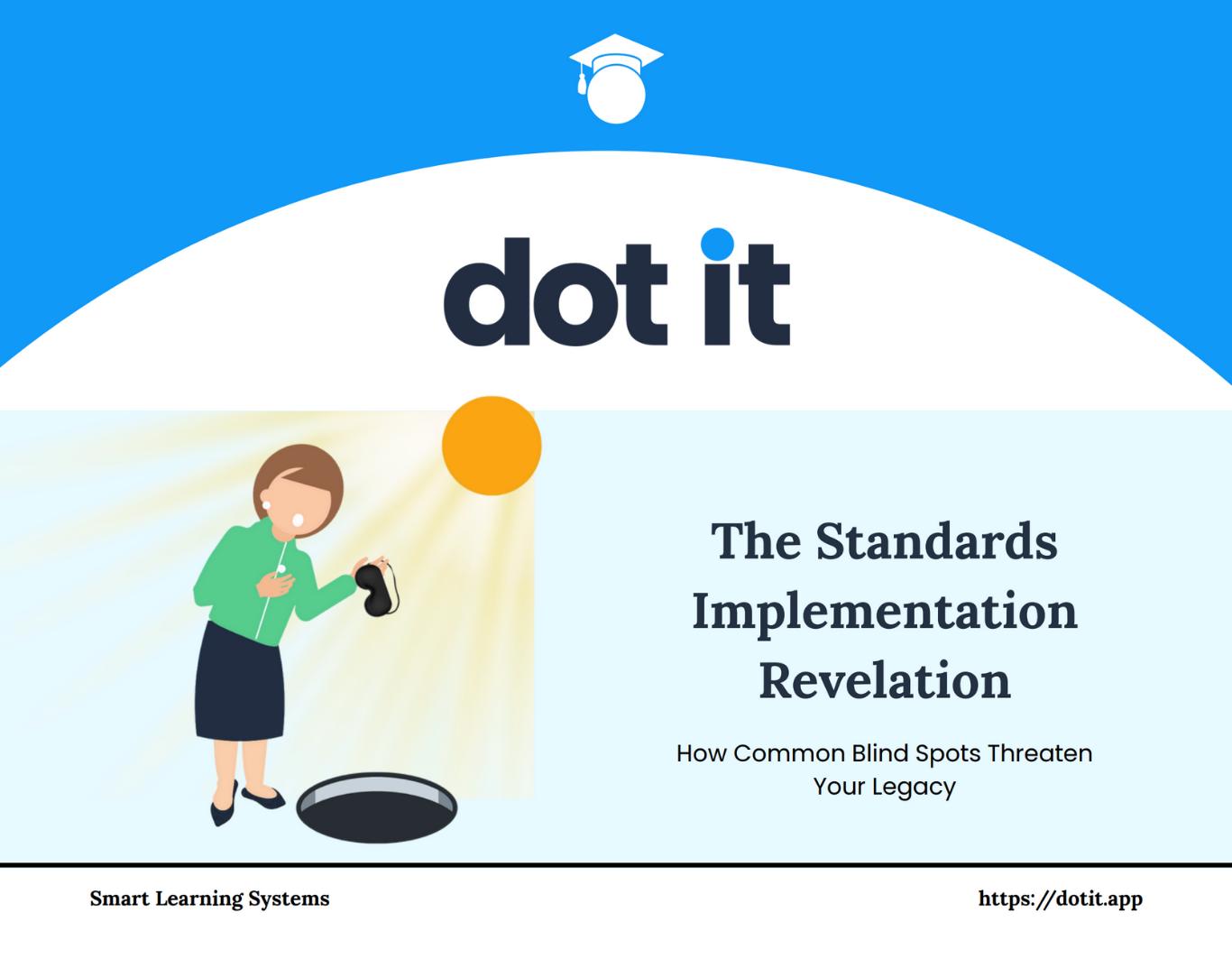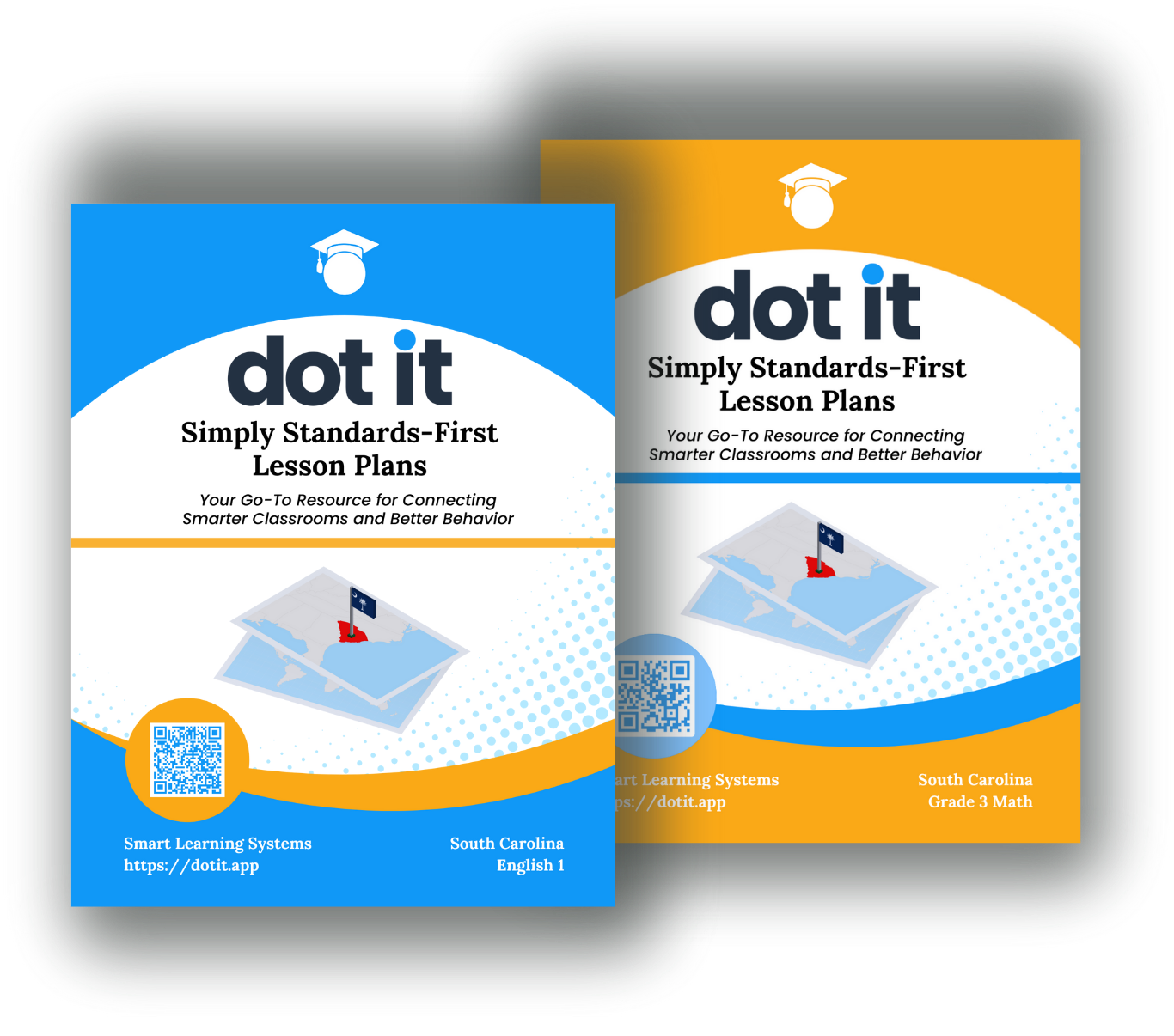In 2017, the U.S. Supreme Court decided on the most significant special-education case in over 35 years. In fact, they ruled unanimously in the Endrew F. v. Douglas County School District. Notably, this decision found in Endrew’s case discusses the meaning of free and appropriate public education (FAPE). According to the decision, IEPs need to be based on the unique educational needs of the students. More importantly, IEPs should allow students to make progress each year.
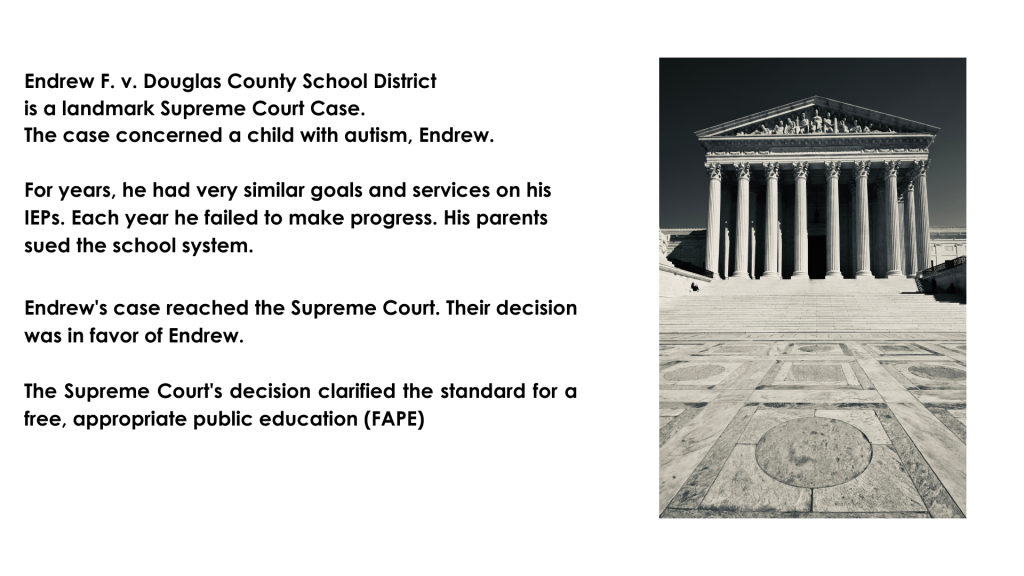
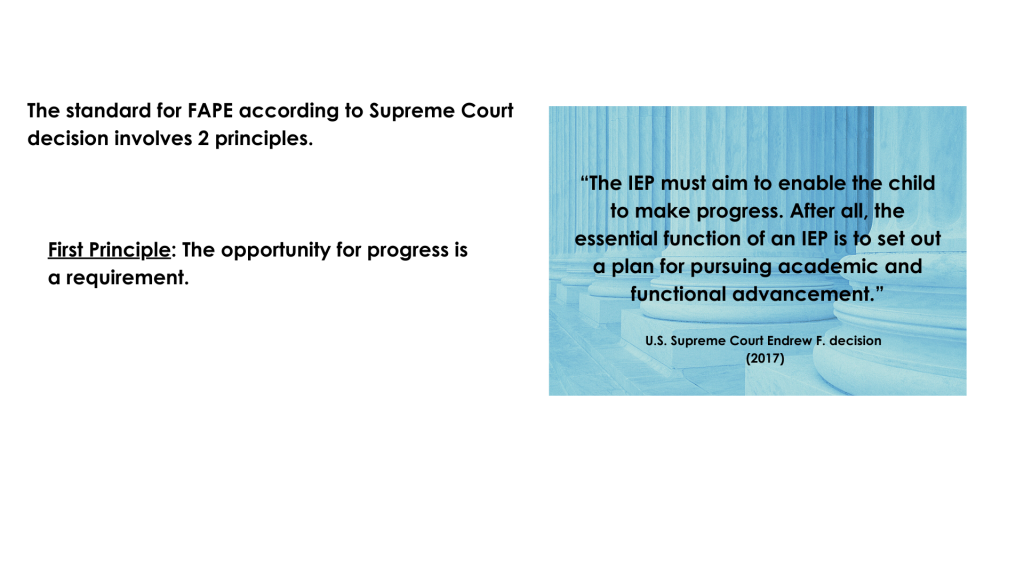
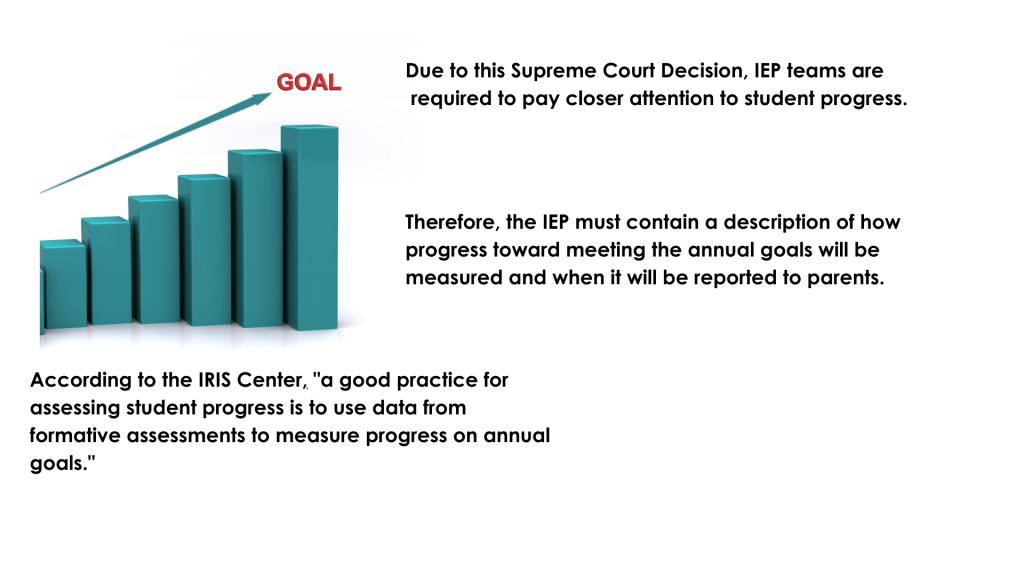
To clarify, teachers use formative assessments to evaluate student learning during instruction. Types of formative assessments include progress monitoring, exit tickets, teacher questioning, and quizzes.
Additionally, the IRIS Center states that formative assessment is a good way to measure student progress.
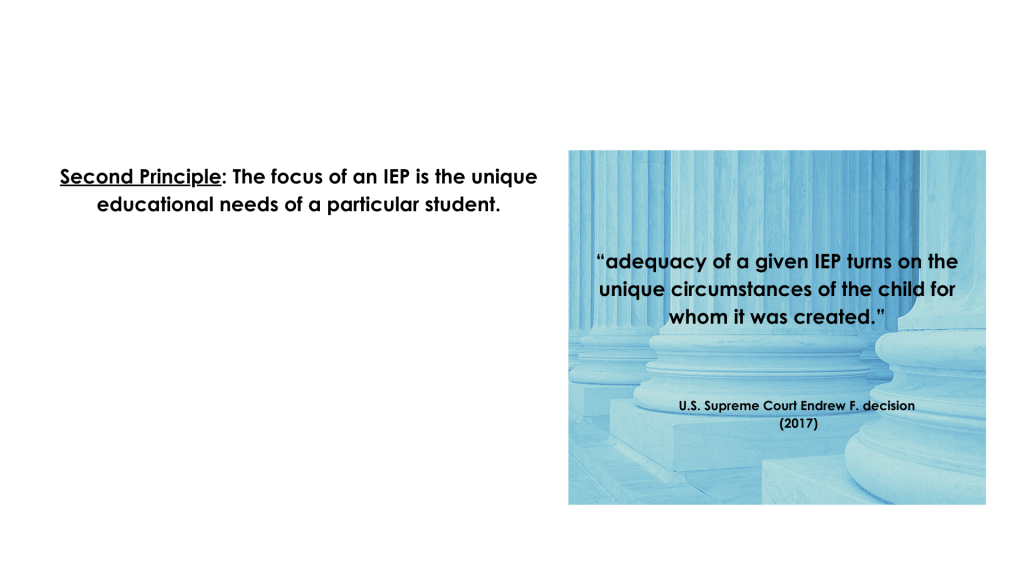
Understanding the unique needs of students with disabilities is essential for providing a high-quality IEP.
For this reason, IEP teams present information that describes a student’s unique needs in the present level of academic and functional performance.
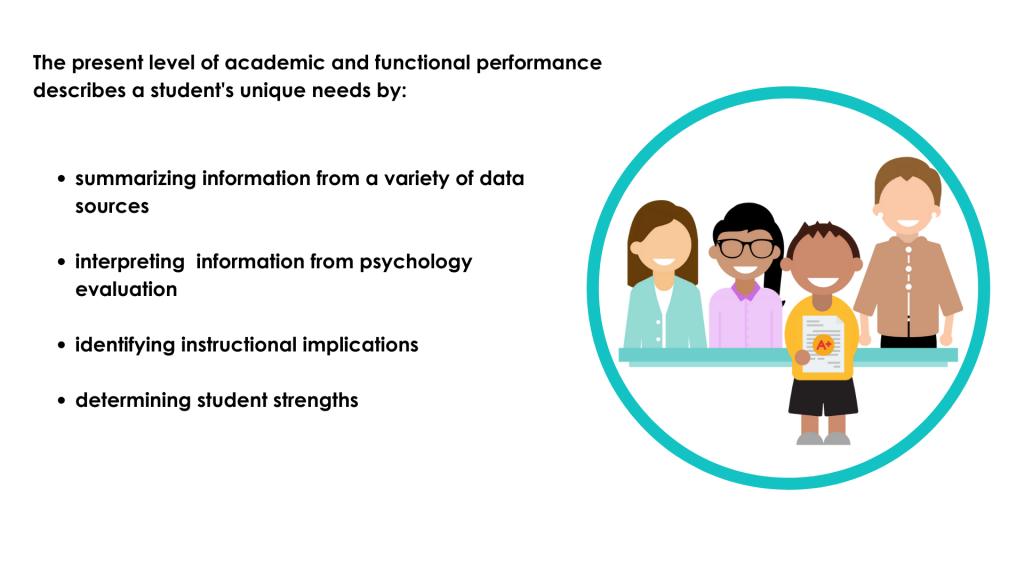
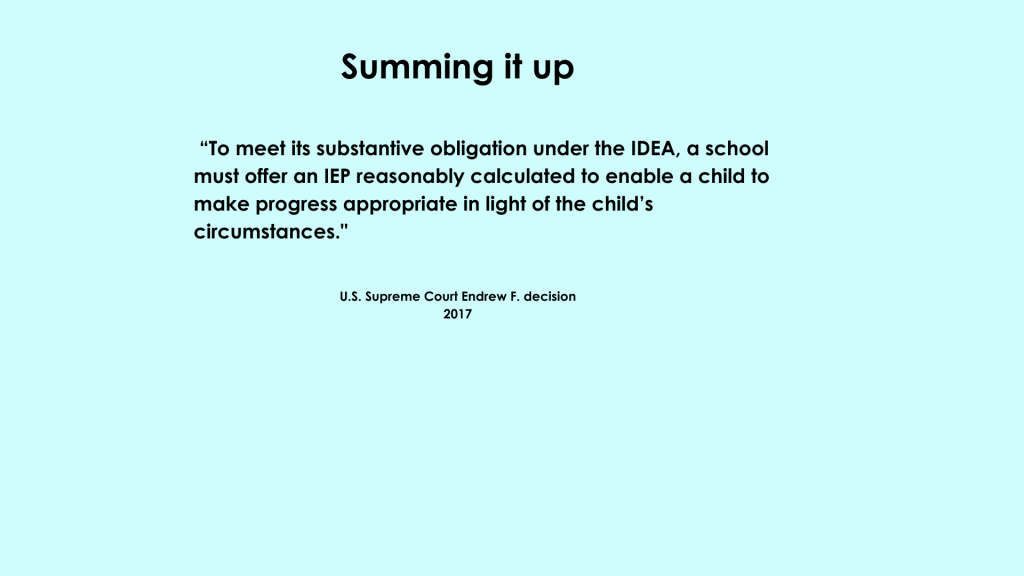
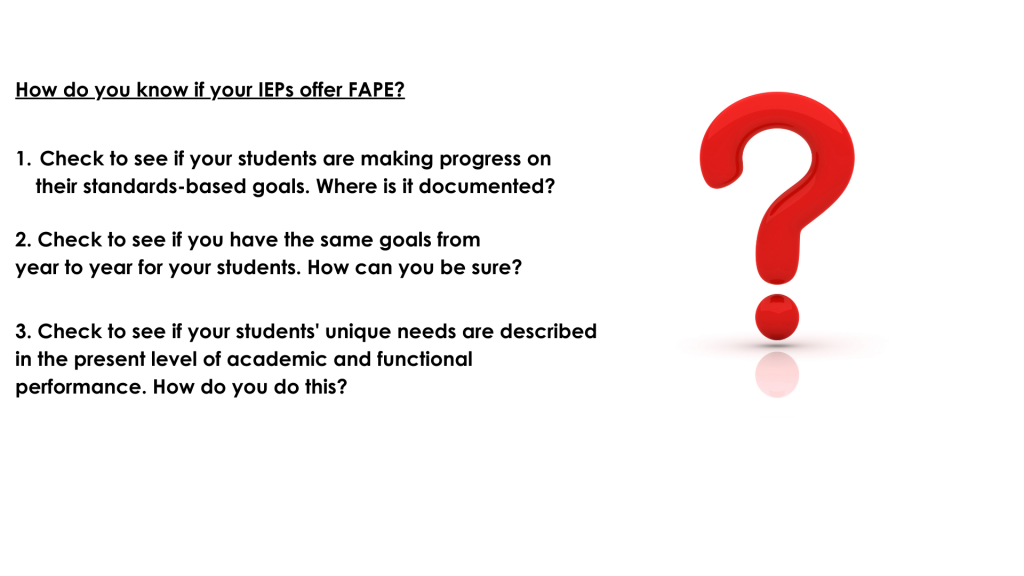
If you just want to be sure you are offering FAPE, check out how Dot It can help you feel confident that you are!



